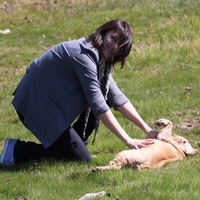Комфортное общество получается, когда вы думаете об интересах других людей. Потому что на их месте когда-то были или окажетесь вы сами. Или ваши друзья. Или родственники. Этот простой тезис, к сожалению, многие трактуют узко — представляют себя на месте других людей в настоящий момент, но не ассоциируют их же с собой в прошлом или будущем, а тем более с близкими. Еще менее очевидно, что "думать о других" работает в обе стороны: нужно не только меньше шуметь по ночам, но и наоборот, терпимо относиться к шумным вечеринкам у соседей. Потому что иногда к вам приходят друзья и вы шумите сами. Или вы пришли в гости к шумным хозяевам. А может быть вы шумели раньше, в юности. Или будут шуметь ваши дети. Если вы когда-то ценили такие моменты, стали бы вы самому себе портить праздник?
Мы все когда-то были бедными студентами. Все мы иногда путешествуем. Самые лучшие мои путешествия были бы невозможны без хостелов и Airbnb. Хостелы существенно дешевле и гостеприимнее, чем гостиницы. А Airbnb дает невероятную гибкость в выборе жилья. Я так и не понял попадает ли Airbnb под понятие гостиничные услуги: там в законе рекурсивное определение что гостиничные услуги это размещение людей в гостинице, а гостиница это помещение для гостиничных услуг. Но то что общество должно быть заинтересовано в возможности недорогих путешествий — совершенно очевидно.
Вопросы, которые себе задаю я, когда представляю, что в одной из квартир моего подъезда устроили хостел: пользовался ли я или мои друзья хостелами? Да, и не раз. Хочу ли я чтобы мои дети могли так же легко путешествовать? Да. Часто ли хостелы располагаются в жилых домах? Да, по всему миру от Грузии до Германии это норма. Означает ли это что в подъезде будет проходной двор? Да. И что? Я противник заборов, пусть люди ходят где захотят, я рад видеть путешественников и поддерживаю этот менталитет. Безусловно, хостел должен следить за чистотой и шумом. Вот только хостел — это место, куда люди приходят спать. Это априори тихое место, проблемы шума не существует. В хостеле много людей спят в одной комнате — сама культура этого формата не предполагает шум (иначе ты помешаешь соседям по комнате). От запрета хостелов в жилых домах не выигрывает никто.
Мы все когда-то были бедными студентами. Все мы иногда путешествуем. Самые лучшие мои путешествия были бы невозможны без хостелов и Airbnb. Хостелы существенно дешевле и гостеприимнее, чем гостиницы. А Airbnb дает невероятную гибкость в выборе жилья. Я так и не понял попадает ли Airbnb под понятие гостиничные услуги: там в законе рекурсивное определение что гостиничные услуги это размещение людей в гостинице, а гостиница это помещение для гостиничных услуг. Но то что общество должно быть заинтересовано в возможности недорогих путешествий — совершенно очевидно.
Вопросы, которые себе задаю я, когда представляю, что в одной из квартир моего подъезда устроили хостел: пользовался ли я или мои друзья хостелами? Да, и не раз. Хочу ли я чтобы мои дети могли так же легко путешествовать? Да. Часто ли хостелы располагаются в жилых домах? Да, по всему миру от Грузии до Германии это норма. Означает ли это что в подъезде будет проходной двор? Да. И что? Я противник заборов, пусть люди ходят где захотят, я рад видеть путешественников и поддерживаю этот менталитет. Безусловно, хостел должен следить за чистотой и шумом. Вот только хостел — это место, куда люди приходят спать. Это априори тихое место, проблемы шума не существует. В хостеле много людей спят в одной комнате — сама культура этого формата не предполагает шум (иначе ты помешаешь соседям по комнате). От запрета хостелов в жилых домах не выигрывает никто.
A comfortable society is obtained when you think about the interests of other people. Because in their place you were once or will be yourself. Or your friends. Or relatives. Unfortunately, many interpret this simple thesis narrowly - they present themselves in the place of other people at the moment, but do not associate them with themselves in the past or in the future, and even more so with relatives. It is even less obvious that “thinking about others” works both ways: you need not only to make less noise at night, but also, be tolerant of noisy parties at neighbors. Because sometimes friends come to you and you make noise yourself. Or you came to visit the noisy hosts. Or maybe you made noise earlier in your youth. Or your children will make noise. If you once appreciated such moments, would you yourself spoil the holiday?
We were all once poor students. We all travel sometimes. My best travels would not have been possible without hostels and Airbnb. Hostels are significantly cheaper and more welcoming than hotels. And Airbnb offers incredible flexibility in the choice of housing. I still did not understand whether Airbnb falls under the concept of hotel services: there is a recursive definition in the law that hotel services is the placement of people in a hotel, and a hotel is a room for hotel services. But the fact that society should be interested in the possibility of inexpensive travel is quite obvious.
The questions that I ask myself when I imagine that a hostel was arranged in one of the apartments of my entrance: did I or my friends use hostels? Yes, and more than once. Do I want my children to travel just as easily? Yes. Are hostels often located in residential buildings? Yes, all over the world from Georgia to Germany, this is the norm. Does this mean that there will be a passage yard at the entrance? Yes. So what? I am an opponent of fences, let people go wherever they want, I am glad to see travelers and support this mentality. Of course, the hostel should monitor the cleanliness and noise. But the hostel is the place where people come to sleep. This is a priori quiet place, the noise problem does not exist. In the hostel, many people sleep in one room - the culture of this format itself does not imply noise (otherwise you will interfere with your roommates). Nobody benefits from the ban of hostels in residential buildings.
We were all once poor students. We all travel sometimes. My best travels would not have been possible without hostels and Airbnb. Hostels are significantly cheaper and more welcoming than hotels. And Airbnb offers incredible flexibility in the choice of housing. I still did not understand whether Airbnb falls under the concept of hotel services: there is a recursive definition in the law that hotel services is the placement of people in a hotel, and a hotel is a room for hotel services. But the fact that society should be interested in the possibility of inexpensive travel is quite obvious.
The questions that I ask myself when I imagine that a hostel was arranged in one of the apartments of my entrance: did I or my friends use hostels? Yes, and more than once. Do I want my children to travel just as easily? Yes. Are hostels often located in residential buildings? Yes, all over the world from Georgia to Germany, this is the norm. Does this mean that there will be a passage yard at the entrance? Yes. So what? I am an opponent of fences, let people go wherever they want, I am glad to see travelers and support this mentality. Of course, the hostel should monitor the cleanliness and noise. But the hostel is the place where people come to sleep. This is a priori quiet place, the noise problem does not exist. In the hostel, many people sleep in one room - the culture of this format itself does not imply noise (otherwise you will interfere with your roommates). Nobody benefits from the ban of hostels in residential buildings.
У записи 37 лайков,
1 репостов,
1682 просмотров.
1 репостов,
1682 просмотров.
Эту запись оставил(а) на своей стене Андрей Мима

























































